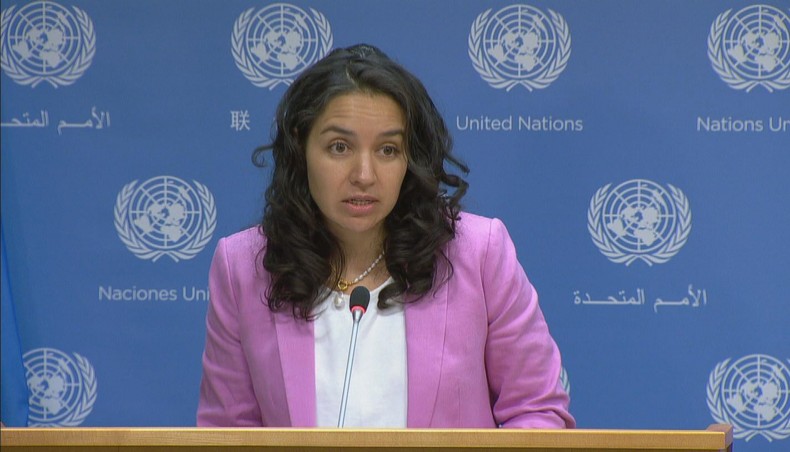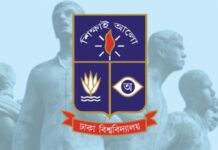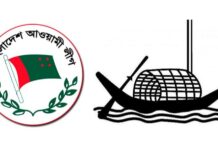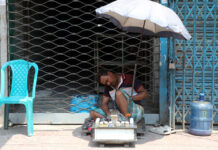
Florencia Soto Niño, an associate spokesperson for the UN Secretary-General. — Collected photo.
The United Nations and the United States are closely watching the January 7 general election in Bangladesh.
They made the statements in separate briefings, while the Brussels-based International Crisis Group said that negotiations were needed between the ruling Awami League and opposition Bangladesh Nationalist Party to avoid instability as the January 7 elections lacked credibility.
The United Nations said that it was closely watching the process of the general election slated for January 7.
‘We’re watching the process closely, and we hope that all elections will be held in a transparent and organised manner. That’s all we have for now,’ Florencia Soto Niño, an associate spokesperson for the UN Secretary-General, said at a routine briefing at the UN headquarters in New York on Thursday while responding to a question.
She was asked about her observation about the election boycott by the main opposition Bangladesh Nationalist Party as 1,970 candidates of 28 out of 44 political parties were contesting the January 7 general election for 300 seats in Bangladesh with 400 foreign observers attending it.
‘No, we don’t,’ said the UN associate spokesperson.
The United States Department of State spokesperson Matthew Miller, meanwhile, has said that the US has been following the case against Nobel laureate professor Muhammad Yunus and would also watch Bangladesh’s January 7 general election very closely.
He made the remarks in a regular media briefing in Washington on Wednesday.
Asked for remarks on New Year’s first day verdict against Nobel laureate and Presidential Medal of Honour recipient professor Yunus by a labour court, Miller said, ‘We have been following the case against him closely. We’ve seen, of course, the widespread international criticism of the verdict. For our part, we have encouraged the Bangladeshi Government to ensure a fair and transparent legal process, and we will continue to follow any further developments closely.’
He said that Muhammad Yunus had made significant contributions to the alleviation of poverty around the world, as reflected in his Nobel Peace Prize and numerous other international honours.
On January 1, the Dhaka Third Labour Court sentenced Yunus and three other top officials of Grameen Telecom to six months’ simple imprisonment in a case over violations of the labour law.
The questioner termed Bangladesh’s January 7 general election as ‘dummy’ and wanted to know whether US government would legitimise such an election.
‘We support a free and fair election in Bangladesh. We have made that quite clear a number of times. We will watch the election very closely, but of course I would never speculate in advance about what actions we may or may not take in response to any development,’ responded Miller.
The International Crisis Group launched the Asia Report Beyond the Election: Breaking Bangladesh’s Political Deadlock in Dhaka and Brussels on Thursday.
The report looks at the 7 January general election, which the main opposition party has boycotted following the arrest of most of its leaders.
It also stated that the election lacked credibility, and was set to increase polarisation in Bangladeshi politics, adding to the risk of further violence.
‘The 7 January election will not resolve Bangladesh’s political crisis. Although it’s too late to postpone the vote, a flawed election provides only more reason to redouble efforts to get the ruling Awami League and its opponents talking again after the poll,’ Crisis Group’s Asia Director Pierre Prakash.
The ruling Awami League is going to hold the January 7 national election under prime minister Sheikh Hasina, while the main opposition Bangladesh Nationalist Party has called for resignation of the incumbent prime minister and setting up a neutral caretaker government to hold an acceptable election.
A crackdown against the opposition was launched on October 28, following a violent clash during a massive rally organised by the BNP.
Since then, the opposition said that the law enforcement agencies arrested 22,000 of its leaders and activists in 643 cases.
AL leaders claimed that half of the arrestees had already been granted bail.
New Age









